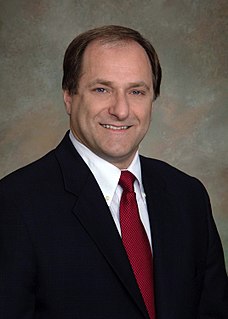A Quote by Merton Miller
My research interests since then have shifted strongly towards the economic and regulatory problems of the financial services industry, and especially of the securities and options exchanges.
Related Quotes
By any measure, CapitalSource outperformed both our direct competitors and the financial services industry in general, particularly in the context of the near collapse of the financial services industry where 19 of the 20 largest financial institutions in the country either failed or were bailed out by the government.
It is no exaggeration to say that since the 1980s, much of the global financial sector has become criminalised, creating an industry culture that tolerates or even encourages systematic fraud. The behaviour that caused the mortgage bubble and financial crisis of 2008 was a natural outcome and continuation of this pattern, rather than some kind of economic accident.
I have been an organizer and then activist and a legislator, all of that. But then there's this big gap after I advanced in Congress and ended up as the ranking member of financial services committee. It took me into the financial services issues and Wall Street and Dodd Frank. And it took me away from the things that I did years ago.
I'm a huge proponent of exchanges, student exchanges, cultural exchanges, university exchanges. We talk a lot about public diplomacy, .. It's extremely important that we get our message out, but it's also the case that we should not have a monologue with other people. It has to be a conversation, and you can't do that without exchanges and openness.





































